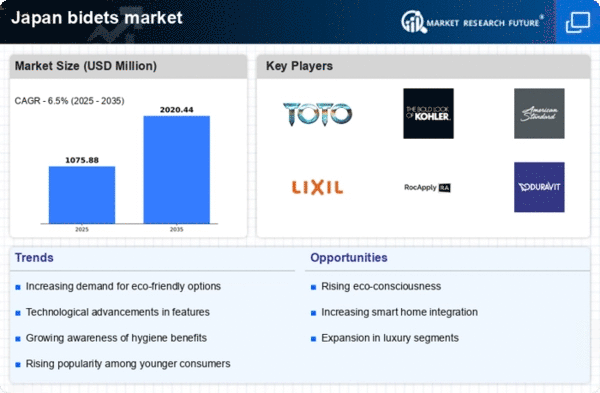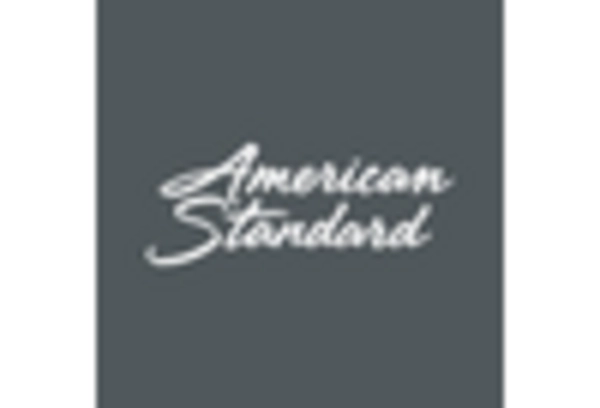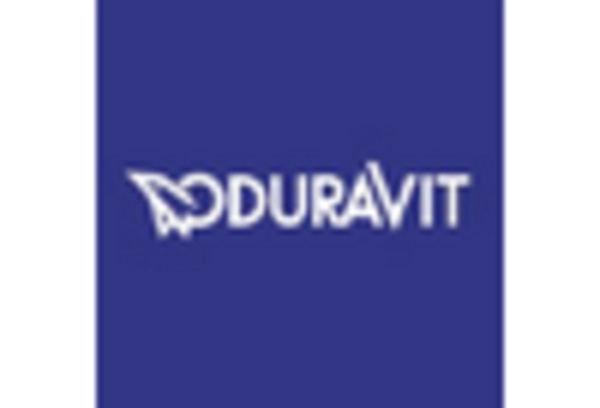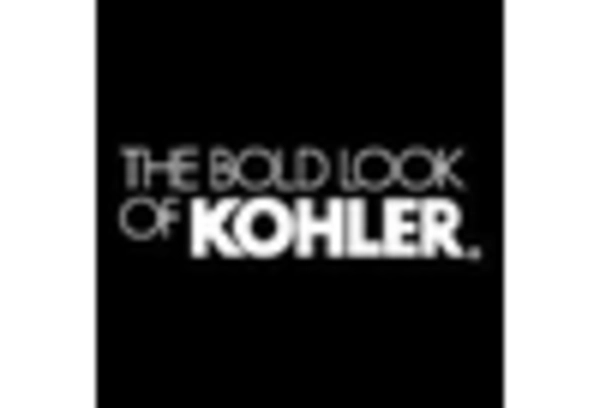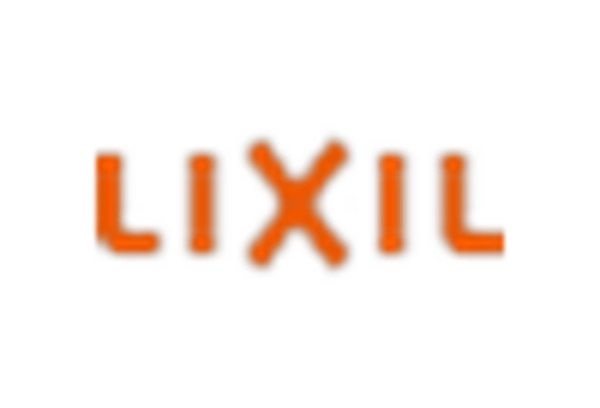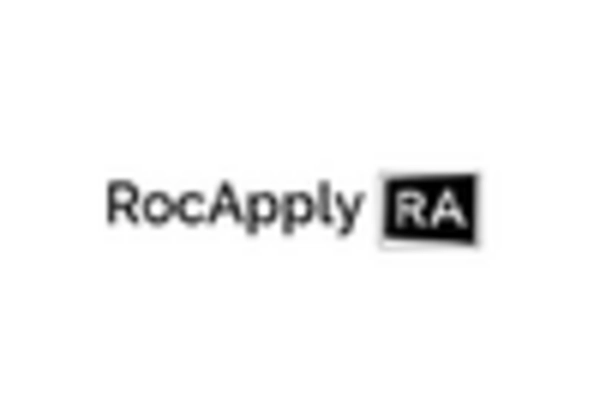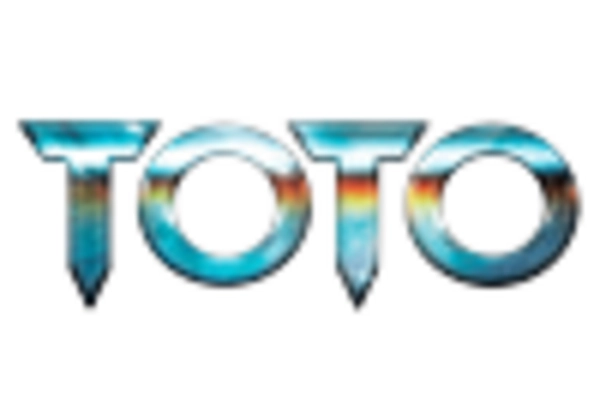Rising Health Awareness
The increasing awareness of health and hygiene among consumers appears to be a pivotal driver for the bidets market in Japan. As individuals become more conscious of personal hygiene, the demand for bidets, which offer enhanced cleanliness, is likely to rise. Reports indicate that approximately 70% of Japanese households have adopted some form of bidet technology, reflecting a cultural shift towards prioritizing health. This trend is further supported by educational campaigns emphasizing the benefits of bidets in preventing infections and promoting overall well-being. Consequently, the bidets market is expected to experience growth as consumers seek products that align with their health-conscious lifestyles.
Innovative Product Features
The introduction of innovative features in bidet designs is driving the bidets market in Japan. Manufacturers are increasingly incorporating advanced technologies such as heated seats, adjustable water pressure, and air drying functions. These enhancements not only improve user comfort but also cater to diverse consumer preferences. For instance, a recent survey indicated that 60% of consumers prioritize features like temperature control and customizable settings when selecting a bidet. This focus on innovation suggests that the bidets market is evolving to meet the demands of a discerning consumer base, potentially leading to increased market penetration and sales.
Cultural Acceptance and Tradition
Cultural acceptance of bidets in Japan plays a significant role in shaping the bidets market. The traditional Japanese emphasis on cleanliness and hygiene aligns seamlessly with the functionality of bidets. Historical practices, such as the use of washlets, have ingrained the concept of bidets into the fabric of Japanese society. As a result, the bidets market enjoys a unique advantage, with a consumer base that is already familiar with and accepting of these products. This cultural affinity may facilitate further growth, as new generations continue to embrace bidet technology as a standard feature in modern bathrooms.
Economic Factors and Consumer Spending
Economic conditions and consumer spending patterns are critical drivers for the bidets market in Japan. As disposable incomes rise, consumers are more inclined to invest in home improvement products, including bidets. Recent economic data suggests that household spending on home appliances has increased by approximately 15% over the past year, indicating a favorable environment for the bidets market. Additionally, the trend towards home renovations and upgrades further supports the demand for bidets, as consumers seek to enhance their living spaces. This economic momentum could lead to sustained growth in the bidets market, as more households opt for these modern sanitation solutions.
Government Initiatives and Regulations
Government initiatives aimed at promoting water conservation and sustainable sanitation practices are influencing the bidets market in Japan. Policies encouraging the adoption of water-efficient appliances have led to a surge in bidet installations, as these devices typically use less water compared to traditional toilet systems. Recent data indicates that bidets can reduce water usage by up to 30%, aligning with national goals for environmental sustainability. As the government continues to advocate for eco-friendly solutions, the bidets market is likely to benefit from increased consumer support and regulatory incentives, fostering a more sustainable future.


